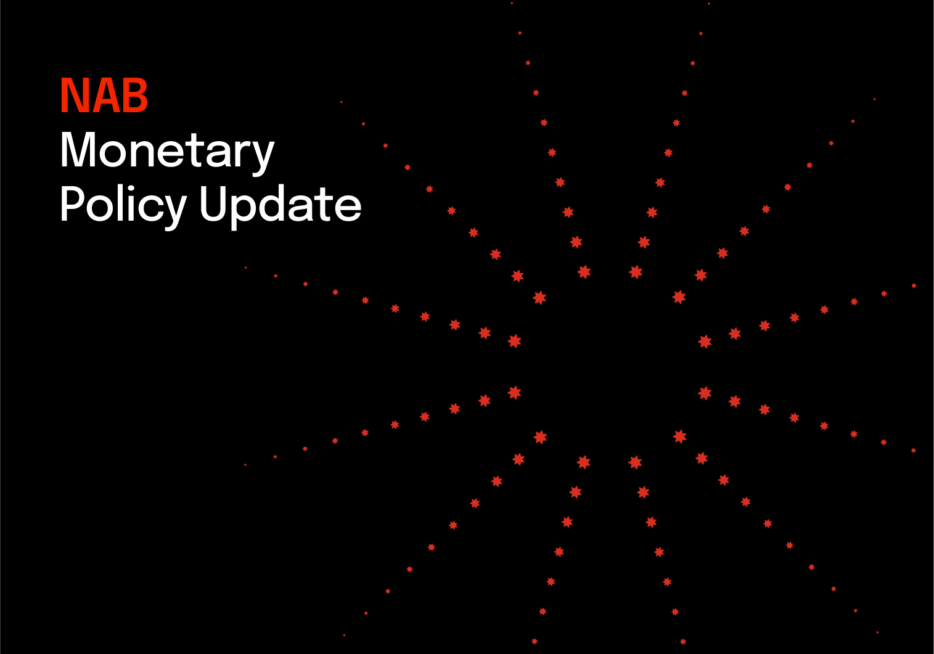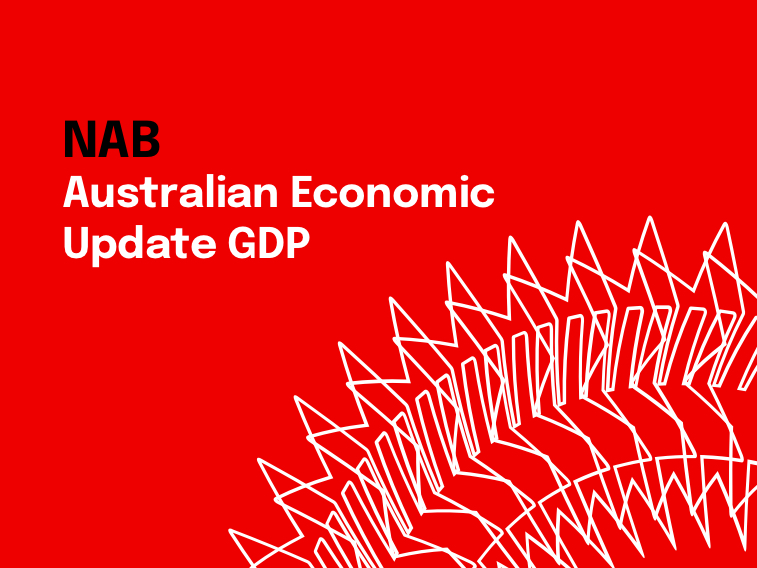RBA surprises with a hold, NAB still sees cuts in August, November and now February


Insight
Growth remained subdued in Q2.

GDP rose by 0.4% q/q (2.1% y/y) – a tenth lower than we had expected but in line with consensus and slightly stronger than the RBA’s August SMP (0.2%). With an upward revision to Q1 (now 0.4%), today’s release shows that the economy broadly maintained momentum, despite a further small slowing in consumption growth, helped by government infrastructure and business investment spending. More broadly, the GDP release confirms our understanding of the unfolding dynamics in the economy evident in other data – the key being the ongoing fall in discretionary spending and also goods consumption (ex-motor vehicle purchases), while services spending was flat. It also reflects the ongoing impact of post-pandemic dynamics with higher than usual volatility in some components including trade and business inventories.
Today’s result will have little direct implication for monetary policy in the near term. The RBA has become increasingly confident that higher rates are working to slow demand and see a better balance within the economy – and today’s data provides further evidence of this. On the nominal side, price pressures remain elevated but broader measures of wages remain well within the RBA’s tolerance. However, the productivity picture remains unhelpful – though is difficult to read on a quarterly basis.
We continue to see below trend growth over each of the next two years, driven by weak household consumption and softness in dwelling investment. While the pandemic continues to fade, an ongoing recovery in trade and a rebalancing in consumption continues to play out which could lead to ongoing volatility in measured output in the near-term.
For further details please see the NAB Australian Economic Update (GDP Q2 2023)
© National Australia Bank Limited. ABN 12 004 044 937 AFSL and Australian Credit Licence 230686.